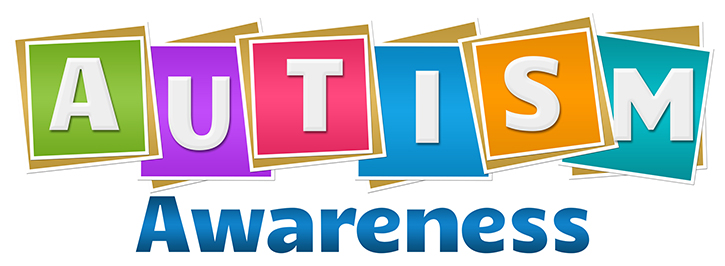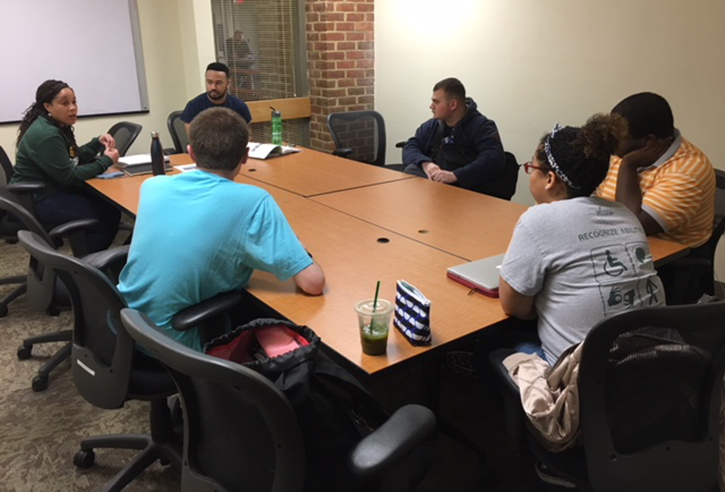
Thinkstock illustration.
Jacquelyn Keaney was so happy, she said she almost cried.
Her mentee, a George Mason University student with autism, was at an event in SUB I on the Fairfax Campus, on her own, and speaking with a group of fellow students.
“This was after months of pushing and talking about it and not having things move,” Keaney, a senior sociology major, said of the experience last year. “I was so proud of her that she had taken an interest in an event that wasn’t planned and wasn’t part of her routine. That showed progress.”
It is the kind of progress for which the Mason Autism Support Initiative (MASI) strives. April was also Autism Awareness Month.
MASI is part of George Mason’s Disability Services, which is part of University Life. It was established in 2014 by Linn Jorgenson, University Life’s associate dean of students, and is a comprehensive program that provides intensive support services to students on the autism spectrum beyond the typical higher education accommodations.
Enrolled students are paired with a peer mentor to help them socially acclimate to campus, and a learning strategist—a graduate student or professional who supports the student’s academic, time management and organizational skills.
There are skill-building classes and monthly social events such as game nights, bowling and laser tag.
The associated fees pay staff, learning strategist and mentor salaries.
“For some students, they’ve never had a peer group. They’ve never had friends before,” MASI Associate Director Jamilah Anderson said. “So this helps them be more confident, having some sort of network.”
“It’s nice having a friendly environment,” said sophomore Alex Redding, who is majoring in cyber security engineering. “It’s a safe haven you can go to. You are surrounded by people who are just like you, and the people who aren’t like you, they understand your condition.”
Mason is the only university in Virginia to offer a formal support program for students with autism, ideastation.org reported. Mason also was ranked No. 3 nationally for students with autism by collegechoice.net.
MASI, which began with eight students in 2014, filled all 25 of its slots this academic year. It will expand to 30 slots in the 2018-19. There are about 1,800 students registered with Disability Services, about eight percent of which are autistic, MASI said.
The goal is to help students help themselves through guidance and learning, MASI Program Coordinator Christopher Williams said.
Peer mentors, who undergo two training sessions and take a one-credit peer leadership class before engaging with students, assist mentees in joining campus clubs and organizations, bring them to events and help them learn the Mason Shuttle system. They also will take their mentees to the movies and into Washington, D.C., and help them learn the Metro system.
Learning strategists focus on academics. They facilitate their mentees’ interactions with professors, and help them connect with Career Services and other campus resources.
“It’s a program that cuts down on our mistakes and blossoms new traits out of our character,” said Justin Boachie, a sophomore majoring in computer game design.
Boachie said he is working on understanding and respecting social boundaries. Sophomore Tyler Wrenn, who is majoring in information technology, said he is working with his learning strategist on managing his time.
“This program has been really good for me because it has helped me organize things I could not organize before, such as my schedule,” Wrenn said.
“They are the most intelligent people I’ve ever met,” Keaney said of students with autism. “They are the most amazing people in the world. They just lack that social capability."

MASI Administrators, students and mentors meet once a week in small groups to talk about issues and progress. Photo by Damian Cristodero
